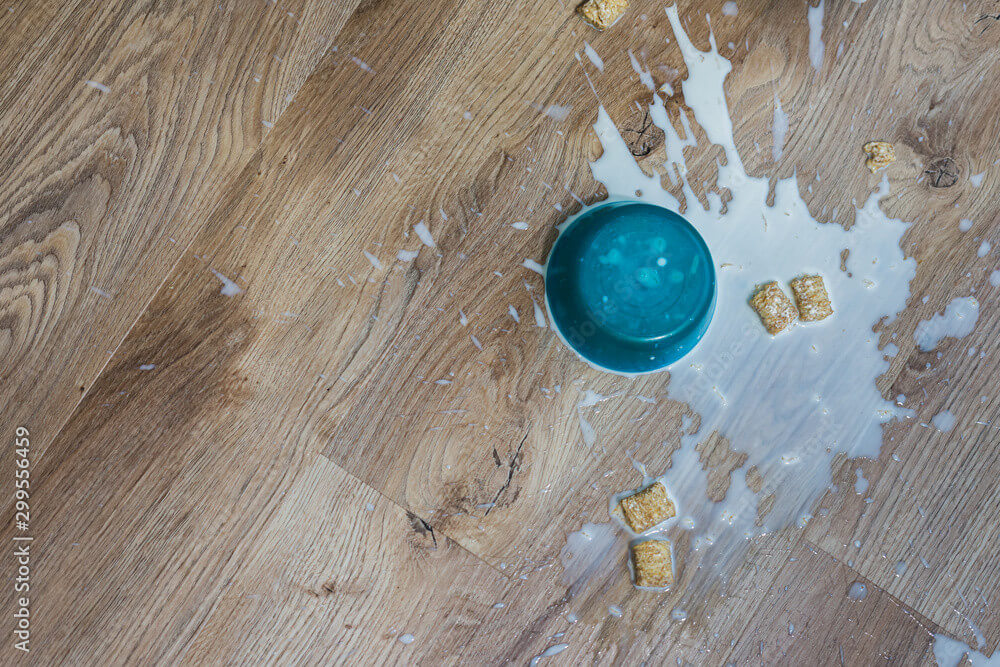Soft flooring—and vinyl flooring in particular—is sometimes referred to as resilient flooring. But just how durable is soft vinyl flooring? Let’s explore the longevity of this popular flooring option.
How Is Soft Vinyl Flooring Made?
If you’re at all familiar with soft flooring, you’re likely well aware that vinyl falls into this category. There’s a huge difference in the look and feel of vinyl compared to carpeting, something we’d universally agree is a soft flooring material. So, what makes vinyl fall into this soft category?
Soft floor tiles like vinyl and even laminate are called soft because they are much more flexible than their hard flooring counterparts: hardwood, concrete, and tile. These hard floors have no “give” or cushioning. Vinyl flooring, on the other hand, is installed with padding beneath it. This padding gives vinyl a few unique properties you won’t see with hardwood. It’s quieter since the cushioning absorbs sound, and it can be installed much faster because it’s placed over subflooring or even older floors. It’s also more comfortable to walk on. On the surface, vinyl planks and tiles are softer than hardwood because they’re smoother. Since hardwood is made of natural wood, it can have imperfections and issues that no amount of sanding can fully remove, making it less smooth to the touch than vinyl. Durable vinyl flooring is formed using plastics and other materials that can be molded and smoothed and are by their nature far more flexible than tile or hardwood.
Testing Vinyl’s Durability
Finding durable vinyl flooring is simple because practically all of it is resilient. Like any building material, there can be cheap imitations of the real deal, which means you can find vinyl that isn’t particularly tough or soft. This is one reason why it pays to work with professional installers who have strong relationships with trusted American flooring companies. Ozburn-Hessey sources our materials from many flooring manufacturers who all exceed standard quality measures used for flooring. We only work with the best people to bring flooring to Nashville.
So, how do you determine what type of vinyl flooring is the most durable? One metric for measuring vinyl flooring’s toughness is its thickness. On any type of vinyl, whether you buy it from a store, online vendor, or flooring company, you will see a measurement. The wear layer thickness is what you’re looking for, and it’s measured in mils. A 1-mil vinyl flooring tile has a very thin wear layer, whereas 40-mil has a very thick wear layer. A common misconception is that these “mils” are short for millimeters, which is not true. In fact, at the thicker end of flooring, a 40-mil wear layer is actually only about 1 mm thick. Any wear layer higher than 20-mil is considered high-durability and will work for residential and commercial applications. You can expect these floors to last upwards of 20 years when properly maintained.
Vinyl flooring is durable for a few reasons, too. More than thickness, vinyl’s overall durability comes from its other features. Vinyl is incredibly moisture resistant, and as long as it’s installed correctly, it’s waterproof, making it great for kitchens and bathrooms. Against scratches and dents, vinyl fares very well too. Furniture scrapes and daily spills are no match for vinyl’s toughness.
Try Vinyl in Your Space
Vinyl is a very durable and resilient type of flooring that’s been used in homes and commercial settings for decades. Ready to explore how vinyl might work in your home or business? Look no further than Ozburn-Hessey for your durable vinyl installation.




